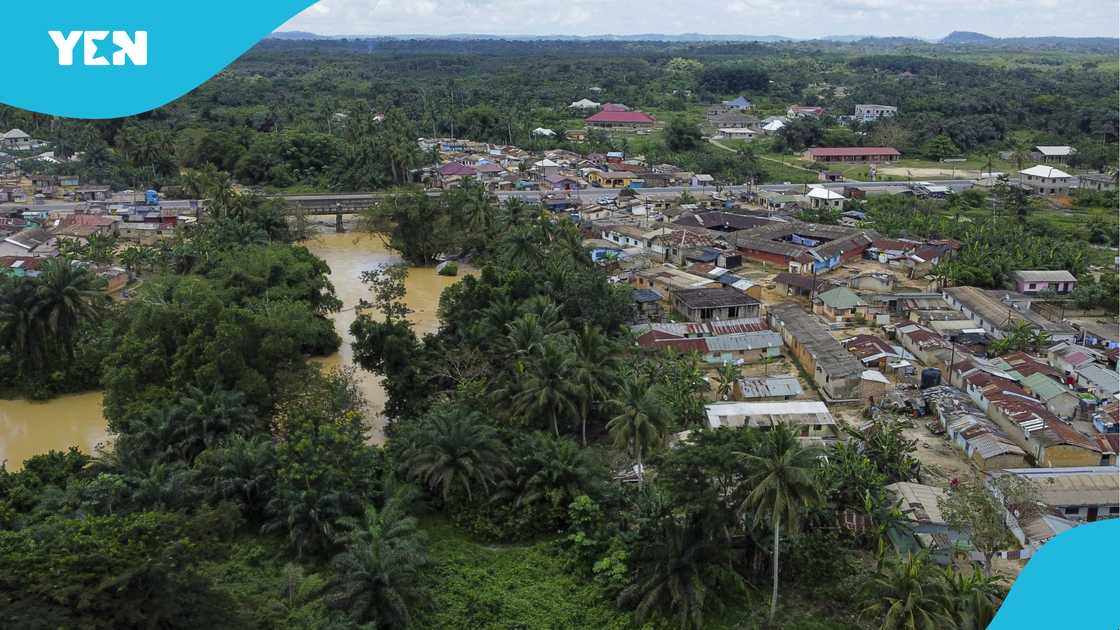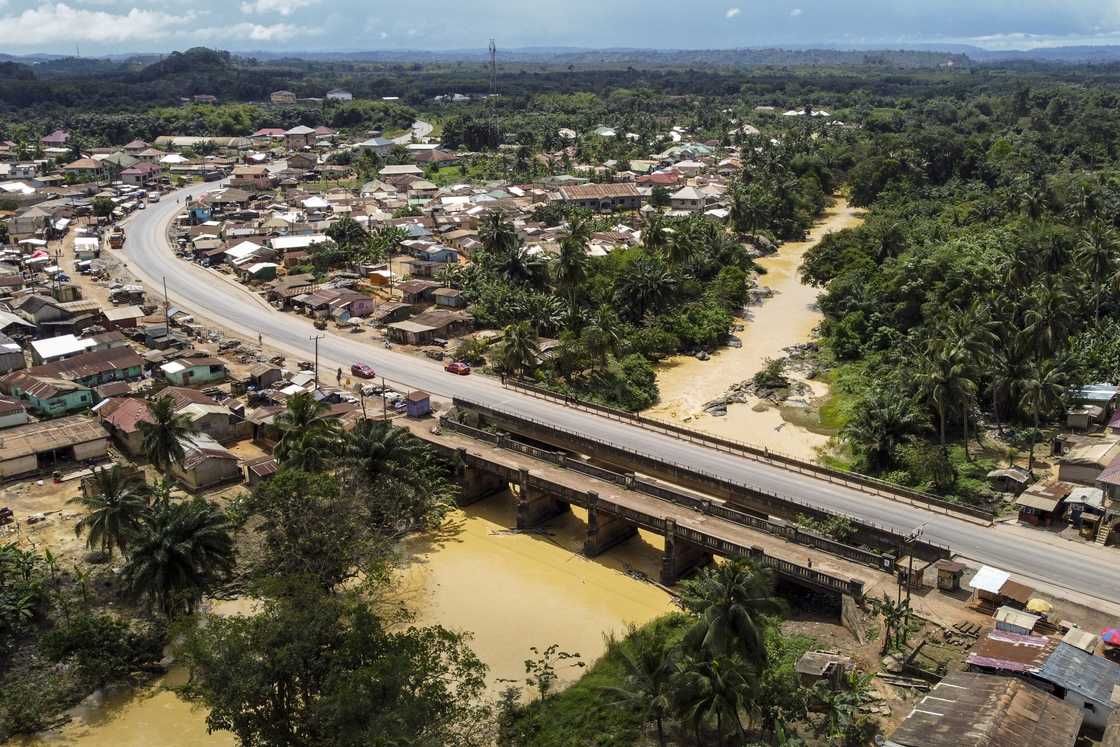By Godwin Gyampoh
“How long can we watch our rivers turn brown and our children fall sick before we say enough is enough?” This is not a question for politicians alone. It is a question for every Ghanaian farmer, trader, chief, pastor, student, and policymaker alike. Illegal small-scale mining, commonly referred to as galamsey, has become one of the greatest threats to Ghana’s survival. Unless we act together, it will consume not only our rivers and farmlands but also our future.

Source: Getty Images
The Environmental Reality
Across the country, rivers once used for fishing, bathing, and drinking are now thick with mud and toxic chemicals. A joint study in 2025 by Pure Earth and Ghana’s Environmental Protection Agency (EPA) revealed mercury levels of 56.4 ppm and arsenic levels of 10,060 ppm in mining zones—thousands of times above World Health Organisation standards. Crops like cassava and kontomire, staples on Ghanaian tables, are already absorbing these poisons. When food itself becomes toxic, the problem ceases to be local—it becomes national.
Former EPA boss Dr John Kingsley Krugu warned: “The law already exists to fight illegal mining. What is needed is political will to put that into its implementation.” But laws on paper mean little if enforcement is weak, or if leaders place short-term political gains over long-term survival.
The Human Cost
Behind every statistic lies a human story. Farmers who once fed their families now stare at barren fields flooded by mine pits. Mothers carry sick children poisoned by contaminated water. Communities queue for hours at broken pumps because their rivers are untreatable. As Archbishop Charles Agyinasare recently declared:
“Galamsey is an issue that threatens our environment, our health, and our future… The land of Ghana is seriously mourning.” His words are not exaggeration—they reflect the daily struggles of people from Tarkwa to Atewa.
The Economic Toll
The economic costs of galamsey are staggering. Ghana loses an estimated US$2 billion annually in tax revenue through illegal mining and gold smuggling. Cocoa farms, a backbone of Ghana’s economy, are being destroyed by polluted soils and diverted water sources. The Ghana Cocoa Board has repeatedly warned that if this trend continues, Ghana risks losing its global standing as a top cocoa exporter. What happens to jobs, foreign exchange, and household incomes when cocoa collapses? We all lose.
A National Security Issue
Galamsey is also a governance and security issue. Mine pits often become death traps for children. Criminal networks profit from illicit trade, thereby undermining the rule of law. In August 2025, Ghana’s Defence Minister, Environmental Minister, and six others tragically died in a helicopter crash while on an anti-galamsey mission. Their deaths were a stark reminder: the fight against galamsey is dangerous, but it is necessary.
Why Unity Matters
The tragedy of galamsey is that it is not limited by geography, political party, or ethnicity. Polluted water in the Western Region flows to the Central Region. Gold smuggled in the Ashanti Region fuels corruption in Accra. A divided response will fail; unity is the only way forward. We cannot continue to treat this as the responsibility of the government alone. As citizens, chiefs, churches, mosques, NGOs, and media, we all have a role to play. Silence, as Archbishop Agyinasare said, is complicity.

Source: Getty Images
Conclusion
Galamsey is Ghana’s collective crisis. It poisons our rivers, robs us of food, costs us billions, weakens our governance, and threatens our children’s health. But it is also our collective responsibility to fight it. If polluted rivers taught us the cost of failed governance, then let this moment teach us the power of unity. Regardless of our political party, tribe, or location, we must come together to protect the land that sustains us.
As Archbishop Agyinasare reminded us, “The land is mourning.” But if we unite, the land can also rejoice—because we chose to save it before it was too late.
The author is a teaching and research assistant at the Department of Political Science, University of Ghana.
Source: YEN.com.gh
Source: Yen.com.gh













